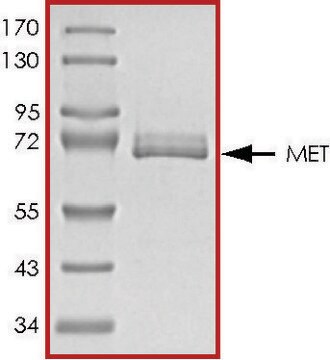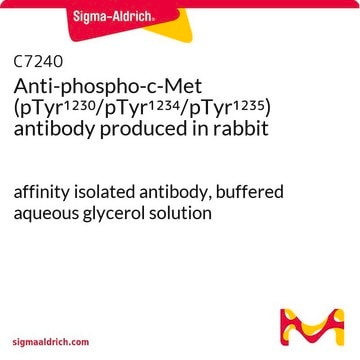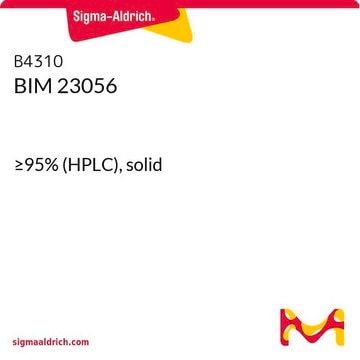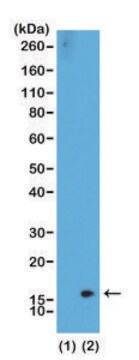07-810
Anti-phospho-Met (Tyr1230/Tyr1234/Tyr1235) Antibody
Upstate®, from rabbit
Synonym(s):
c-Met, cmet, HGFR, RCCP2, met proto-oncogene (hepatocyte growth factor receptor)
About This Item
Recommended Products
biological source
rabbit
Quality Level
antibody form
affinity purified immunoglobulin
antibody product type
primary antibodies
clone
polyclonal
purified by
affinity chromatography
species reactivity
mouse, human
species reactivity (predicted by homology)
rat (based on 100% sequence homology)
manufacturer/tradename
Upstate®
technique(s)
immunocytochemistry: suitable
immunofluorescence: suitable
western blot: suitable
isotype
IgG
NCBI accession no.
UniProt accession no.
shipped in
dry ice
target post-translational modification
phosphorylation (pTyr1230/pTyr1234/pTyr1235)
Gene Information
human ... MET(4233)
mouse ... Met(17295)
rat ... Met(24553)
Specificity
Immunogen
Application
Quality
Target description
Legal Information
Not finding the right product?
Try our Product Selector Tool.
Storage Class Code
12 - Non Combustible Liquids
WGK
WGK 2
Flash Point(F)
Not applicable
Flash Point(C)
Not applicable
Regulatory Listings
Regulatory Listings are mainly provided for chemical products. Only limited information can be provided here for non-chemical products. No entry means none of the components are listed. It is the user’s obligation to ensure the safe and legal use of the product.
JAN Code
07-810:
Certificates of Analysis (COA)
Search for Certificates of Analysis (COA) by entering the products Lot/Batch Number. Lot and Batch Numbers can be found on a product’s label following the words ‘Lot’ or ‘Batch’.
Already Own This Product?
Find documentation for the products that you have recently purchased in the Document Library.
Our team of scientists has experience in all areas of research including Life Science, Material Science, Chemical Synthesis, Chromatography, Analytical and many others.
Contact Technical Service








